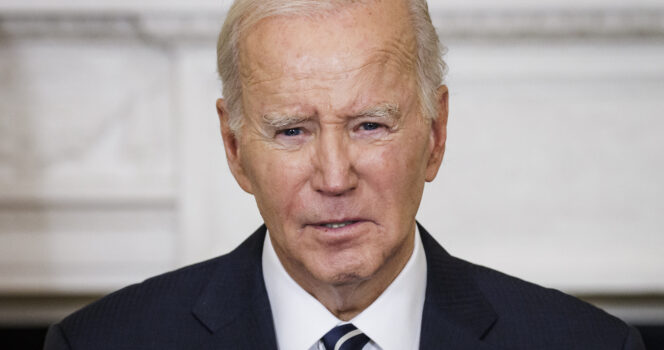Joe Biden Says World Leaders Still Seek His Advice Despite Leaving Office
Even after stepping down amid scrutiny and questions over his leadership, former President Joe Biden claims that global and political figures—including European heads of state—continue to reach out to him for counsel. Speaking last week at the Society for Human Resource Management (SHRM) convention in San Diego, Biden indicated that he remains an informal advisor behind the scenes.
“I’m getting calls, I’m not going to go into it, I can’t, from a number of European leaders asking me to get engaged,” Biden said during a conversation with SHRM President Johnny Taylor, according to the Western Journal. “I’m not [getting involved], but I’m giving advice. Because things are different.”
A clip of the exchange shared on X by Democratic strategist Chris Jackson showed Biden alternating between a subdued, soft-spoken tone and a more impassioned delivery. “Ya know, I often ask the question rhetorically: if America doesn’t lead the world, who can?” he said, raising his voice. “No, no, not a joke. Not because of power. Who can put it together?”
Biden also asserted that lawmakers from both parties continue to seek his perspective. “I’m dealing with a lot of Democrats and Republican colleagues, all of them wanting to talk,” he said. “Not because they think I have the answer, just to bounce things off me.”
The former president briefly veered into a lighter, personal anecdote: “I’m also laying rubber with my ’67 Corvette on my driveway,” he added, eliciting a mix of amusement and bewilderment among attendees.
Critics were quick to respond, describing the remarks as out-of-touch and emblematic, in their view, of broader challenges that characterized his presidency. Supporters, however, pointed to his ongoing engagement as evidence of his continued influence in international and domestic political circles.
Biden’s comments highlight a unique post-presidential role, blending informal advisory work with glimpses of personal life, while underscoring the continued global and domestic attention former leaders can command.

Under Biden’s administration, the United States grappled with rising inflation, soaring gas prices, and persistent challenges at the southern border. His tenure ended amid mounting pressure from within the Democratic Party, ultimately leading to his decision not to seek re-election. The administration was also dogged by several controversies, including the impeachment proceedings against Homeland Security Secretary Alejandro Mayorkas and scrutiny surrounding Hunter Biden, the president’s son. Preemptive pardons issued to figures such as Dr. Anthony Fauci and Hunter Biden further drew criticism, particularly due to questions over the use of autopen signatures.
A recent report from U.S. Immigration and Customs Enforcement (ICE) added another layer of concern, highlighting failures in vetting sponsors for unaccompanied migrant children, some of whom later suffered harm under the care of their guardians.
Critics argue that these issues cast doubt on Biden’s claims of remaining a sought-after advisor on the global stage. “Given the chaos, confusion, and credibility issues that dogged the final years of his presidency, the idea that foreign leaders are still seeking his wisdom is… bold,” one political analyst commented. To his detractors, the remarks fit a familiar pattern — a moment where the former president blurs the line between legacy and personal narrative.
